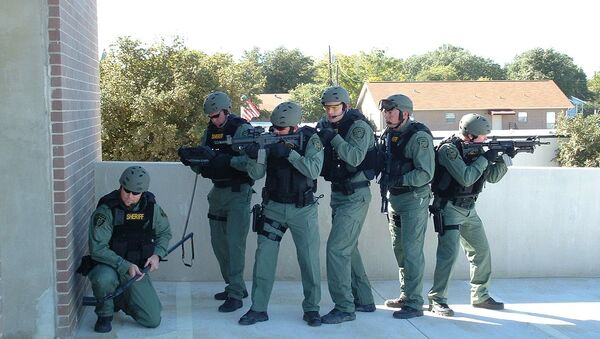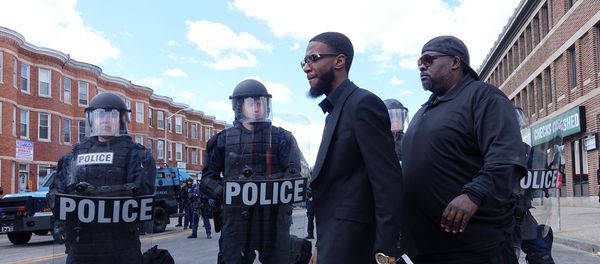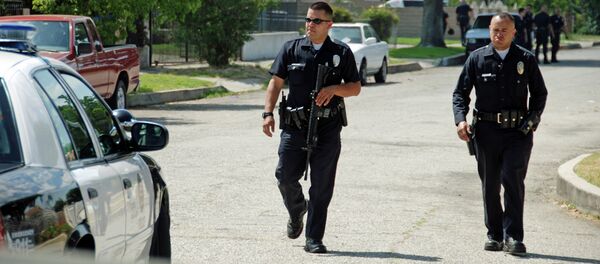WASHINGTON (Sputnik) — The US government’s continued militarization of the police forces runs counter to its rhetoric of winding down the War on Drugs, the Drug Policy Alliance (DPA) told Sputnik on Thursday.
"There is a real disconnect with the Obama administration’s rhetoric of ‘We are ending the War on Drugs’. Meanwhile they are literally putting equipment used for war on the streets of US cities to be used for counter-narcotics activities," DPA Policy Manager Michael Collins told Sputnik.
Mother Jones reported this week that fully a quarter of US law enforcement requests for military-like armored vehicles, or MRAPs, obtained through a Pentagon program were justified for being used in the War on Drugs.
Since the 1990s, the Pentagon has run a program to transfer excess military equipment to local law enforcement agencies, including the iconic mine resistant MRAP vehicle.
The program gained momentum after the September 11, 2001 terror attacks against the United States, and the excess military equipment from two wars in Afghanistan and Iraq.
"One of the main problems with the program is that law enforcement is given preferential treatment… to conduct counter-narcotics activities," Collins said.
"That really incentivizes law enforcement agencies to use the equipment for the War on Drugs… to use the excuse of the War on Drugs to get that equipment."
Collins added that there has also been a "deliberate conflation between the terminology of the War on Terror and the War on Drugs."
The United States has the largest prison population in the world, and about half of all inmates are in jail on non-violent drug-related offences, according to the US Bureau of Justice Statistics.
Collins, whose organization met with Obama administration officials during a review, said the administration "really only made minor tweaks to the program" that provides local law enforcement militarized equipment.
"One of the challenges for the War on Drugs is the law enforcement lobby," he added. "That is a very powerful lobby and they like their toys, and they like their equipment. And politicians listen to law enforcement because nobody wants to be called soft on crime," Collins explained.
Following a series of high profile instances of police brutality and militarized police response to protests, the US public has grown increasingly wary of the militarization of police forces.
The Obama administration has said it would review policies and procedures, and call for better police-community relations.
Collins pointed out to disconnect between public opinion over drugs and police militarization.
While the US public opinion in shifting, he said, law enforcement considers the War on Drugs as a source of employment, equipment, and funding.
"[I]t is a stream of money," Collins stated.
While most Americans would say they do not want to see MRAPs and tanks on the city streets, and law enforcement should not use such equipment to pursue marijuana prohibition, "we still see law enforcement using this equipment for those reasons and that is very disappointing," Collins concluded.




